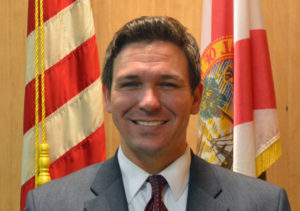
An indefensible amendment from a member of Congress
WASHINGTON, D.C. – Three years ago, Rep. Kathy Castor, from Florida’s 14th congressional district, helped solve a missing children’s case.
Following her first visit to Cuba, Cole and Chase Hakken, two boys in her Tampa District, ages 4 and 2, were kidnapped and taken by boat to the island. But, Rep. Castor used contacts she made on her trip to link the Hillsborough County Sheriff’s Department, Cuban officials, and U.S. diplomats. Their ability to talk and work together meant the boys could be speedily returned to their grandparents entrusted with their care. In the end, the right of Elián González’s father to bring his son home to Cuba was vindicated in much the same way, although it took considerably longer.
A family crisis, a migration crisis, a missile crisis – crises that have roiled the waters between Florida and Cuba; none could have been resolved had the U.S., Cuba, and the former Soviet Union not been willing or able to engage.
In fact, the installation of a hotline between Washington and Moscow on August 30, 1963, less than a year after a crisis that brought the world to the brink of nuclear war, was a signal achievement of John F. Kennedy’s presidency. The following year, a national election in the U.S. buried beneath a pile of hand-picked daisy petals any notion that we’d disconnect that hotline.
But, just as our risk to crisis never wanes, the self-defeating devotion to disconnection never dies.

Despite the presence of ongoing risks – posed by narcotics trafficking in the Caribbean, a surge in illegal migration from Cuba that continues without abate, the prospect for more off-shore drilling in the Gulf of Mexico, and more – legislation is now pending in Congress to sever “any bilateral military-to-military” contacts between the U.S. and Cuba.
See for yourself here: The language crafted by Rep. Ron DeSantis (FL-6) as an amendment to the National Defense Authorization Act contains no exceptions. One safety valve – just one – is provided by the amendment. No matter the gravity of a potential crisis, contacts can only resume if the government of Cuba were to meet every condition imposed on it by the Helms-Burton Act of 1996.
Can you imagine? If the amendment were to pass, and a blowout oil spill the size of the Deepwater Horizon were to take place, the amendment says that no U.S. military commander, no Pentagon official, could pick up a phone and contact a Cuban counterpart to ask, “what’s going on?” Or “how can we help?” They could only place a call to see if Cuba had become a fully functioning democracy – something U.S. sanctions have never produced after a half-century of exertion – and most unlikely to occur in the middle of a crisis.
It’s actually even worse than that. As many of our allies have said in the days since the amendment became public, this amendment would reverse or halt cooperation that is already taking place – or is soon yet to be.
A few examples:
- For years, the U.S. forces at Guantánamo and their Cuban counterparts have held monthly, face-to-face, across the fence discussions, ensuring clear communication and avoiding the risk of a misunderstanding spinning out of control. We talked about this in our “9 Ways” report in 2009.
- Last week, we discussed the visit in South Florida that brought together the U.S. military and a Cuban team on the topic of drug interdiction.
- We’ve reported on a pact to provide for a joint U.S.-Cuba response to a massive oil spill.
None of this could take place if the Congress were to yield to the temptation of disconnection.
The amendment, quite frankly, is a danger unto itself. But it also connects to a larger purpose, to themes dating back to a prior time – to “ideas” of Cuba as a security risk, to Cubans as “the other,” and of the U.S. as the arbiter of Cuba’s future – along with the misbegotten notion that you don’t talk to your adversaries, no matter what.
These are the foundational elements of the Helms-Burton law. Twenty years ago, it codified the sanctions the U.S. imposed on Cuba, penalties that were never meant to come off, until Cuba cried uncle.
By preventing U.S.-Cuba military-to-military collaboration, even during moments that threaten U.S. national security, the wording of the amendment calls our attention to Helms-Burton, and how it harms our national interest, in ways the author probably did not intend.
The House of Representatives considers the National Defense Authorization Act of 2017 – and the DeSantis amendment – next week.
(From Cuba Central)


